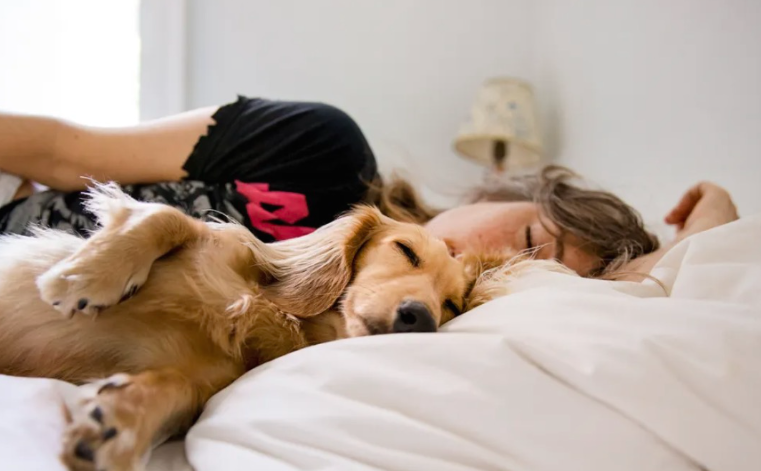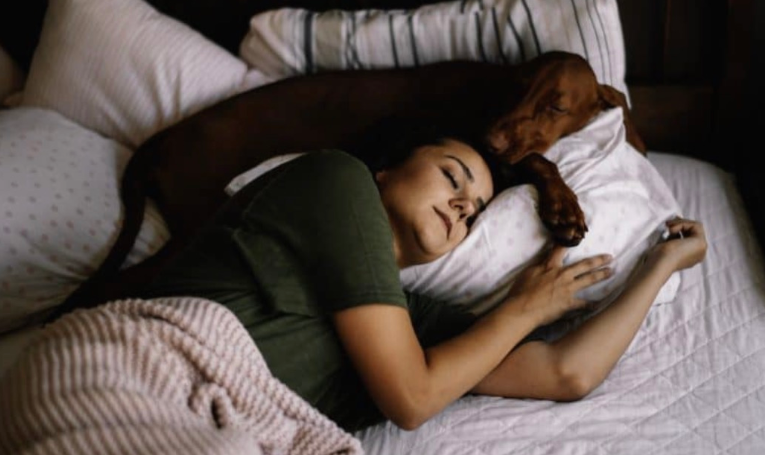Retired United States Army First Class Sergeant Luciano Yulfo was being honored recently at a New York Knicks game in Madison Square Garden when something happened that he was never expecting.
When Yulfo was brought down to the court, he had no idea the team’s Hoops For Troops had a big surprise for him!
During his 36 years in the military, Yulfo served in both Operation Iraqi Freedom and Operation Enduring Freedom. He medically retired from active duty in 2014 after he was injured while deployed in Afghanistan. After being injured, Yulfo was stationed at the Walter Reed National Military Medical Center for 2 years. He finally retired from the military in April of 2016, 36 years after he enlisted.
As soon as Yulfo got back to the U.S., he applied for a service dog to help him deal with the injuries he suffered overseas, but he found himself placed on a waiting list for 18 months. When the Knicks heard about this, they knew they had to do something to help him.
Between quarters, the team brought Yulfo onto the court and gave him a personalized Knicks jersey. They then left him speechless by giving him a new service dog!
An organization called Paws of War trains and places rescue dogs with U.S. military veterans, and they decided to give a dog named Murphy to Yulfo! Each dog is trained specifically for the needs of the individual veteran they are serving, so Murphy is already completely prepared to help Yulfo!
Yulfo was overwhelmed by this gesture and he immediately dropped to his knees to greet the dog. It is clear that these two will be best friends for many years to come!
SHARE this story so your friends and family can see this as well!
Science Shows That Women Sleep Better Next To Dogs Than Men

Undoubtedly, the importance of a good night’s sleep for overall health is widely acknowledged. With numerous studies exploring the optimal ways to achieve quality rest, recent research proposes a surprising solution, sharing the bed with dogs. Canisius College in New York State spearheaded this unconventional investigation, revealing that women experience better sleep next to their canine companions compared to human or feline counterparts.
Lead researcher Christy Hoffman, Ph.D., an animal behaviorist, conducted a survey involving nearly a thousand women across the United States to draw these intriguing conclusions. The results unveiled that 55% of participants shared their beds with at least one dog, 31% with a cat, and 57% with a human partner.

Hoffman delved into the reasons behind dogs emerging as superior sleep partners. The study highlighted that dogs’ sleep patterns align more closely with humans than those of cats. Hoffman theorizes that this synchronization may contribute to improved sleep quality, as dogs are adept at accommodating their owners’ sleep schedules, potentially mitigating disruptions caused by differing bedtime routines.
Furthermore, the structured routines imposed by dogs, such as morning walks, assist in regulating their owners’ daily schedules, thereby enhancing overall sleep quality. Another contributing factor is the physical stillness of dogs during sleep, unlike fidgety feline companions. Women in the study reported that dogs tended to remain on the bed throughout the night, fostering a sense of security and stability.
The study’s third crucial finding emphasizes the unique sense of security that dogs provide. Unlike cats or even human partners, dogs offer a heightened level of psychological comfort. Hoffman suggests that the perception of dogs as vigilant protectors, capable of alerting their owners to potential intruders, plays a role in enhancing the sense of security.

Despite these intriguing findings, the study acknowledges the subjectivity of sleep preferences. Factors such as a dog’s snoring or generating excess warmth could pose challenges. Additionally, there are individuals who find solace in the companionship of cats during bedtime.
It’s essential to note that the study relies on participants’ subjective perceptions of their pets’ impact on sleep quality and duration. Consequently, further research is necessary to definitively crown dogs as superior sleeping partners. Hoffman emphasizes the need for continued exploration into the various contexts under which pets positively or negatively influence sleep quality.
As American households increasingly welcome pets, understanding these dynamics becomes crucial. Future research may utilize technologies like Fitbit-like devices to objectively track sleep quality in diverse sleeping conditions, providing a more comprehensive understanding of the intricate relationship between humans and their animal companions during bedtime.




Leave a Reply